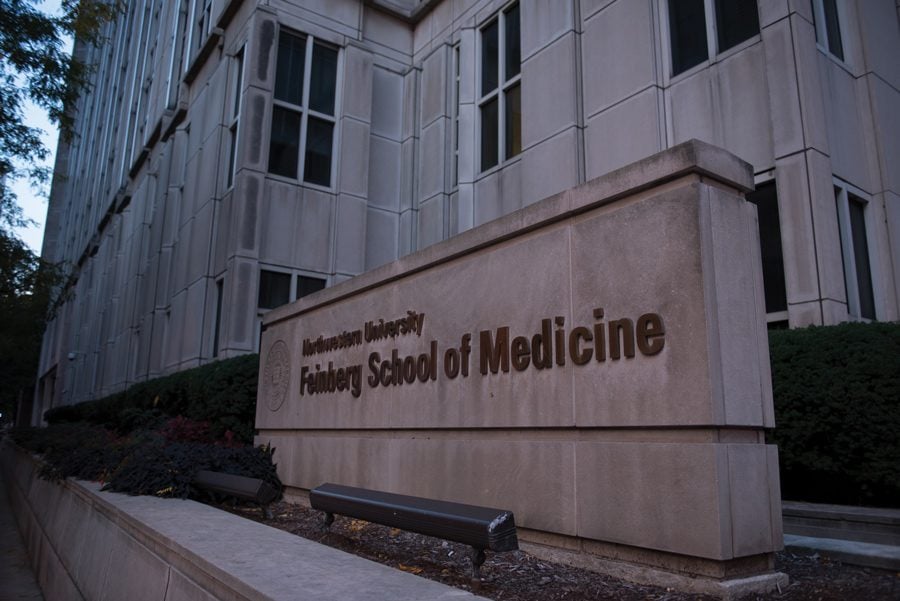Northwestern Medicine study identifies molecules that kill cancer cells
Katie Pach/Daily Senior Staffer
Northwestern’s Feinberg School of Medicine in downtown Chicago. Feinberg Prof. Marcus Peter led a study identifying RNA “suicide molecules” that kill cancer cells.
October 23, 2017
A Northwestern Medicine study found that RNA “assassin molecules” can trigger a mechanism that forces cells to commit suicide, which may help develop new forms of cancer therapy, the University announced Thursday in a news release.
Feinberg Prof. Marcus Peter, the study’s lead author, has spent eight years looking for molecules he believes are part of an ancient “kill switch” to protect against cancer, the release said. The molecules he found can eliminate the genes that cancer cells need to survive.
“We knew they would be very hard to find,” Peter said in the release. “The kill mechanism would only be active in a single cell the moment it becomes cancerous. It was a needle in a haystack.”
To seek out the natural cancer protections he believed existed in the human genome, Peter tested small RNA molecules that are generally used to suppress activity in specific genes, according to the release. He found that many of these molecules — in addition to repressing their target genes — also killed cancer cells.
Cancer cells cannot develop resistance to the molecules, which is “a first,” the release said.
In collaboration with Feinberg Prof. Shad Thaxton, Peter tested the molecules on mice with ovarian cancer, and found the treatment helped shrink tumors with no toxicity to the animals. Peter and Thaxton are continuing to refine the treatment, the release said, and Peter hopes the research could have an effect on cancer treatment.
“Ever since life became multicellular, which could be more than two billion years ago, it had to deal with preventing or fighting cancer,” Peter said. “So nature must have developed a fail-safe mechanism to prevent cancer or fight it the moment it forms. Otherwise, we wouldn’t still be here.”
Email: madelineburakoff2020@u.northwestern.edu
Twitter: @madsburk


